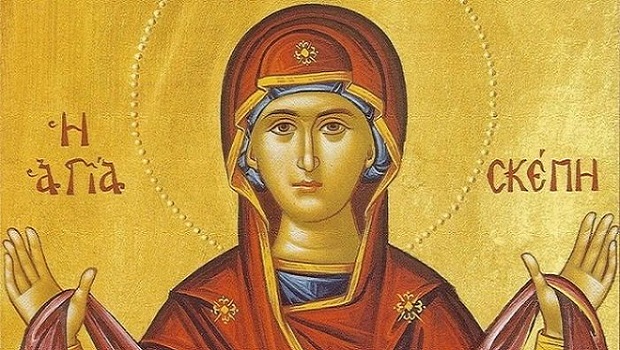Very Rev. Archimandrite Zacharias (Zacharou)
In the life of man, there are two periods which are of the greatest significance. The first is youth, during which he will lay solid foundations for all his life and redeem his time with the wealth of eternity. The second is old age, when his just and praiseworthy life will be sealed with the same crown of righteousness that the Lord, the eternal and righteous Judge, will give to all those who loved His coming to the earth and honoured His Gospel.
eternity. The second is old age, when his just and praiseworthy life will be sealed with the same crown of righteousness that the Lord, the eternal and righteous Judge, will give to all those who loved His coming to the earth and honoured His Gospel.
Youth is distinguished by enthusiasm for the light of knowledge, zeal for good desires, the search for perfection and above all the creation of personal relationships which bring out our natural gifts.
Old age, when preceded by the steady and wise redemption of the time of life through incorruptible grace, inspires thirst for a higher world, towards which it longs, and hastens to reach. It is graced with supernatural gifts and full of the living hope of the compassionate embrace of ‘the Father of mercies, and God of all comfort’.[1]
Today we would like to dwell for a moment on the theme of interpersonal relationships which much occupies young people, but also everyone else. In order that relationships be creative and life-giving, they should fulfil certain necessary preconditions.
Every man who enters into a personal relationship should have a clear idea of his origins and of his purpose. God created him out of nothing and in a direct manner, taking dust from the earth with His own hands and breathing into his nostrils the Spirit of life. In creating man in His image and after His likeness, we could say that, in some sense, God replicated Himself.
The Lord placed man in a paradise of delight and gave him one commandment, with the intention to help him to remain in the humble measure of his created-ness. Thus he would be enabled to maintain a life-giving relationship with his Creator, so as to finally arrive at the great purpose of his spiritual perfection. For as long as he kept that commandment, he enjoyed his relationship with God and lived in His presence with gratitude, peace and the sweetness of humble love. In the Light of God’s Countenance, Adam also found a harmonious relationship with Eve that became a source of joy and inspiration to him. He saw her as his own life and as being more precious than anything else which surrounded him in paradise. Thanking God for her, for the helper that he had received from Him, he said ‘Now, this is bone of my bones and flesh of my flesh.’[2] He felt Eve was his own heart and the transparency of their relations was so perfect, that although they were both naked, they did not have any passion and ‘were not ashamed’.[3]
However, later on, carried away by the proposal of the devil to become gods, Adam and Eve disobeyed the commandment of God, which shook to the core their relationship with Him as well as the relationship between them. As transgressor and offender, Adam ceased to feel that he was akin to and a friend of God, able to converse with Him face to Face, and together with Eve who shared his guilt, ‘he hid… from the face of the Lord God in the middle of the wood of paradise.’[4] The transgression of the commandment alienated the first-created from God and filled them with the fear of death, which entered their life as a just retribution, as God had forewarned them. The innocence and communion of love between them was no longer the same. When God, in His great tenderness, called them to account, both of them rebelled, condemning God as the cause of their tragedy, and saw each other not as they did before, as their own life, but rather as a cause of death.
[1] 2 Cor. 1:3.
[2] Gen. 2:23.
[3] Gen. 2:25.
[4] Gen. 3:8.
Source: pemptousia.com
ABOUT THE ORTHODOX CHRISTIAN NETWORK
Orthodox Christian Network (OCN) is a 501(c)3 and an official agency of the Assembly of Canonical Bishops of the United States of America . It is a recognized leader in the Orthodox Media field and has sustained consistent growth over twenty-two years. We have worked to create a community for both believers and non believers alike by sharing the timeless faith of Orthodoxy with the contemporary world through modern media. We are on a mission to inspire Orthodox Christians Worldwide. Click to signup to receive weekly newsletter.
Join us in our Media Ministry Missions! Help us bring the Orthodox Faith to the fingertips of Orthodox Christians worldwide! Your gift today will helps us produce and provide unlimited access to Orthodox faith-inspiring programming, services and community. Don’t wait. Share the Love of Orthodoxy Today!
OCN has partnered with Pemptousia. A Contemporary post-modern man does not understand what man is. Through its presence in the internet world, Pemptousia, with its spirit of respect for beauty that characterizes it, wishes to contribute to the presentation of a better meaning of life for man, to the search for the ontological dimension of man, and to the awareness of the unfathomable mystery of man who is always in Christ in the process of becoming, of man who is in the image of divine beauty. And the beauty of man springs from the beauty of the Triune God. In the end, “beauty will save the world”.




0 Comments